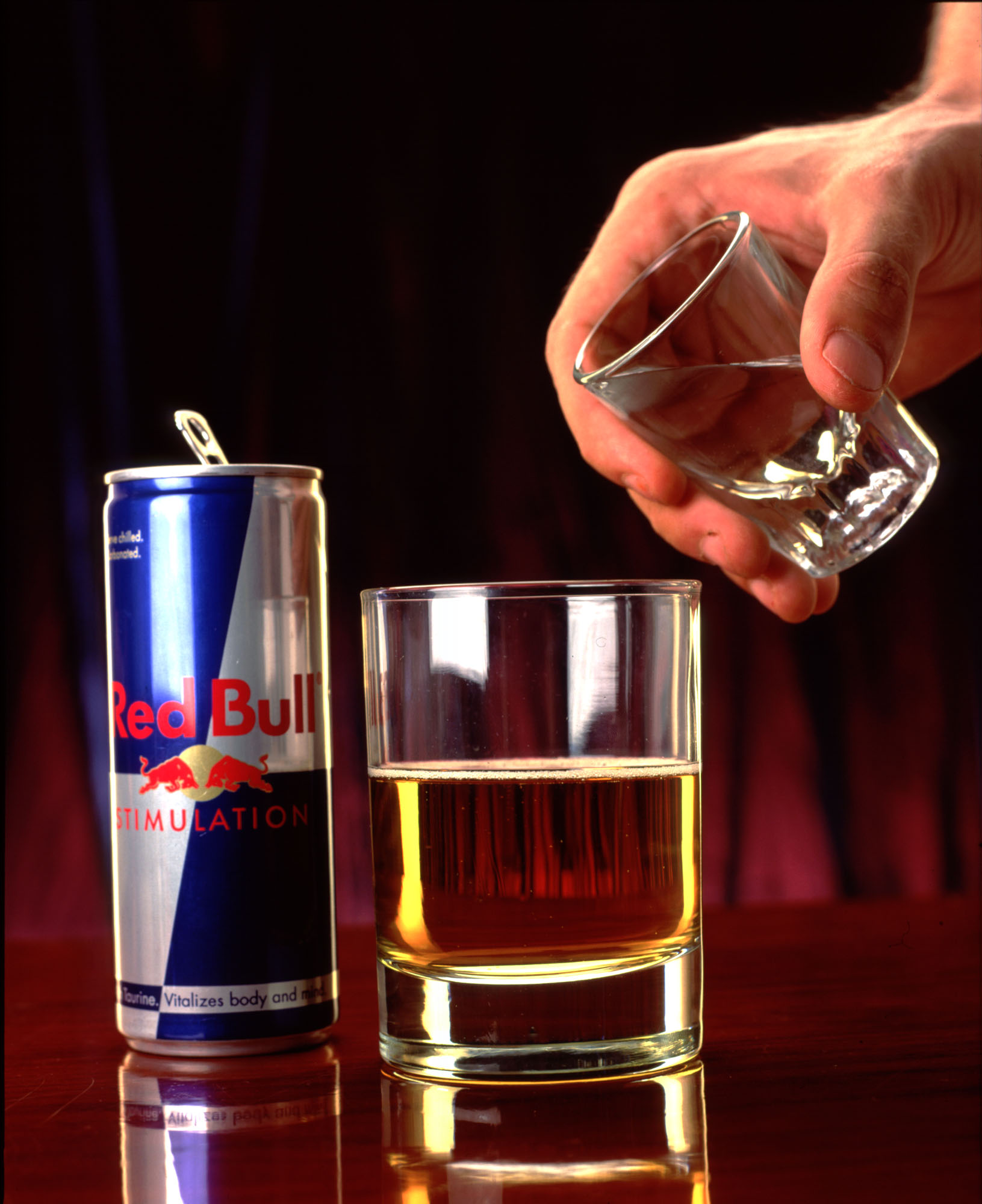
For years, research has suggested that mixing alcohol and heavily-caffeinated energy drinks could have negative health effects. Combining the two seems to make you want to drink more and mask signs of inebriation.
The combo’s potential negative consequences aren’t just a personal risk, but a public health one, suggests a new paper in the journal Advances in Nutrition.
“When people mix energy drinks with alcohol, people drink more than they would if they had just consumed alcohol, which is associated with a cascade of problems,” says paper author Cecile Marczinski, associate professor of psychology at Northern Kentucky University.
The increased likelihood of engaging in risky behavior, particularly drunk driving, is chief among the public health concerns, Marczinski says. The caffeine rush in energy drinks makes a drinker look and feel more balanced and coordinated than their drinking would suggest, leading some drinkers to believe they’re not actually drunk. In one study Marczinski cited, people who combined energy drinks and alcohol were four times more likely to think they could drive home than their counterparts who drank alcohol alone. The effects of the energy drink may also make it less obvious to police officers that a driver is drunk, making the officer less likely to breathalyze.
Other public health concerns that stem from mixing alcohol and energy drinks include adolescent brain damage, more emergency department visits and increased hospitalizations, the review says.
Even though the widespread popularization of energy drinks is a relatively new phenomenon, some jurisdictions have worked to address the growing public health issues, Marczinski says. Some parts of Australia ban the sale of energy drinks in bars after midnight. “You can have really dramatic solutions or minor steps in the right direction,” she says.
University of Connecticut Health Center researcher Steven Meredith, who has studied the health effects of the mixed drinks but was not involved in the review, says that more research is needed to fully understand how energy drinks and alcohol interact with the body together. Still, taking a more active approach to public policy makes sense, he says, given the reported risks.
“If you’re in public policy and health care, it’s better to be safe than sorry,” he says.
More Must-Reads from TIME
- Cybersecurity Experts Are Sounding the Alarm on DOGE
- Meet the 2025 Women of the Year
- The Harsh Truth About Disability Inclusion
- Why Do More Young Adults Have Cancer?
- Colman Domingo Leads With Radical Love
- How to Get Better at Doing Things Alone
- Michelle Zauner Stares Down the Darkness
Write to Justin Worland at justin.worland@time.com